American-born Benedictine monk, Fr. Cassian Folsom, O.S.B., prior emeritus of the Monks of Norcia, was in town the weekend of June 23/24 to celebrate Sunday Mass at St. Anthony’s Catholic Church. Here are some photos, and his beautiful homily for the occasion.
Homily from Fr. Cassian Folsom, O.S.B.
St. Anthony Catholic Church
Des Moines, Iowa
Sunday, June 24, 2018
Feast of St. John the Baptist
All those who heard about the divinely-inspired birth of St. John the Baptist, and how Zechariah’s tongue was loosed in the naming of the child, marveled at these things. “All those who heard them laid them up in their hearts, saying ‘what then will this child be?’” (Lk 1:66)
First of all, he will be the Baptist, the baptizer of Christ. This is not a baptism for the remission of sins, clearly, but the occasion for a great epiphany, the manifestation of Christ in glory. The revealing of his true identity as beloved Son of the Father, the inauguration of his public ministry. When John baptized Jesus, contact with the body of Christ sanctified the waters of the Jordan, and gave to the waters of baptism the spiritual power to wash away all sin – original and actual – and bring about a most wonderful re-birth. In fact, we were sanctified by these waters to such an extent that
[t]aken up by Christ – and taken on Christ – we are not the same after the laver of baptism as we were before; instead the body of the one reborn becomes the flesh of the crucified (St. Leo, Sermon 63,6).
John baptizes, and the body of Christ is washed, both Head and members.
What then will this child be? He will be a prophet, the prophet of the Most High. Who is “the Most High”, but God the Father? Yet, John is a prophet of the Messiah. And who is the Messiah, but God the Son, our Lord Jesus Christ. And can John be a prophet of God the Father and God the Son? Well, our Lord explains in Gospel: The Father and I are one. John is a prophet of the Most Holy Trinity because in the baptism of Christ, the Holy Spirit descends upon him in bodily form as a dove, and the paternal voice came from heaven: “Thou art my beloved Son, with thee I am well pleased” (Lk 3:22).
If John is a prophet of the Most High, we the baptized are worshipers of the Most High. The Roman Canon prays for “omnibus cultoribus”: for all right-believing worshipers of the catholic and apostolic faith. Our first duty as baptized Catholics, our greatest privilege, our highest calling – is to be worshipers of God, adorers of the Most High. And in doing so, we prostrate ourselves before the Divine Majesty, imitating the angels and the saints.
John is a prophet of the Most High; we must be right-believing worshipers of the Most High God.
Then, what they will this child be? He will be the forerunner, for he will go before the Lord to prepare his ways. John is the one who runs before; Jesus Christ is the giant who comes forth from the bridal chamber of the Virgin’s womb, and rejoices to run his course (Ps 18). What is the course? What is this race? It is the path leading to the cross, which the baptized must run as well. St. Paul says, on the verge of being martyred:
I have fought the good fight; I have finished the race. I have kept the faith. Henceforth there is laid up for me the crown of righteousness which the Lord will award to me on that Day (2 Tim 4:7-8).
John is the forerunner, Christ is the giant who runs his course; we must be formed as athletes of Christ, well-trained to run the glorious race.
And then what will this child be? He will be the friend of the Bridegroom. Christ is the Bridegroom, the Bride is the Church. John explains:
He who has the bride is the bridegroom; the friend of the bridegroom, who stands and hears him, rejoices greatly at the bridegroom’s voice, therefore this joy of mine is now full (Jn 3:29).
We who have been baptized are “children of the wedding feast”. In one of the parables, Christ says: “Can you make wedding guests fast while the bridegroom is with them?” The Greek for “wedding guests” is “children of the wedding feast”. Children of the bridegroom and the bride, for we are born of the virginal womb of the church, the baptismal font.
The bridegroom is Son of God by nature; the children of the bridegroom are sons by adoption – Filii in Filio – sons in the Son.
As we grow in the faith, we become not only children, but friends, for Christ said: “I have called you friends”. John is the friend of the bridegroom, Christ is the bridegroom; and we are children of the wedding feast.
So, what will this child be then? He is the voice of one crying in the wilderness. He is the voice, but Christ is the Word. We, the baptized, are the Ear that listens to the Word. St. Benedict begins the Rule by saying “Listen, my son, to the precepts of the Master, and incline the ear of your heart” (Prologue 1). What does the voice say to the ear of our heart, except “He must increase, I must decrease” (Jn 3:30).
Here is a summary of the entire Christian life. Our life project, you might say. Love of God must increase; love of self must decrease. Humility must increase; pride must decrease. The new man must be born and grown; the old man must fade away and die.
Even the natural elements preach the same Gospel message to us. For from the summer solstice, from the Birth of St. John the Baptist, the days begin to decrease. From the winter solstice, the Nativity of our Lord, the days begin to increase.
What does this voice say? He must increase; I must decrease. What does the word say? What does he say to the ear of our heart…to the most intimate core of who we are? He says: “Listen now, and lay it up in your hearts. You, too, are my beloved Son.”
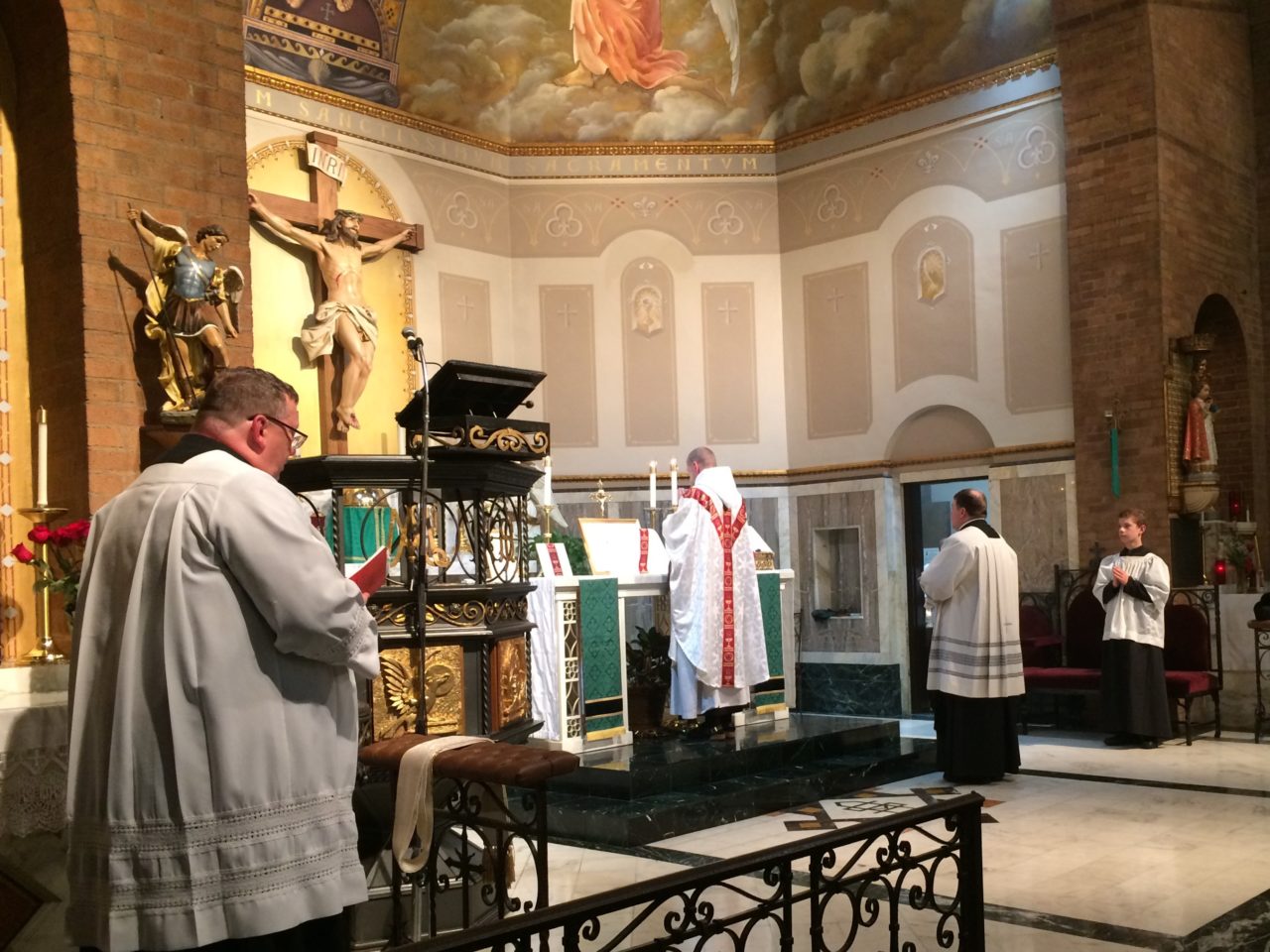
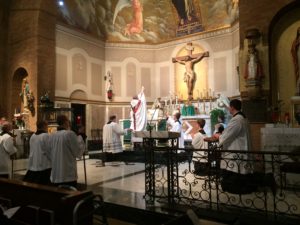
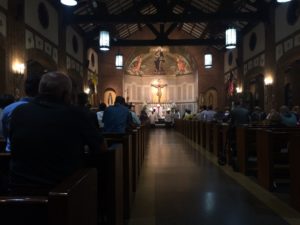
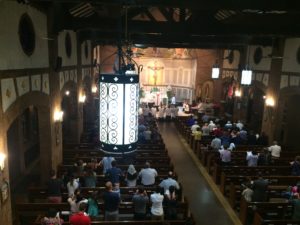
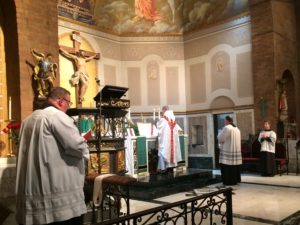
Leave a Reply